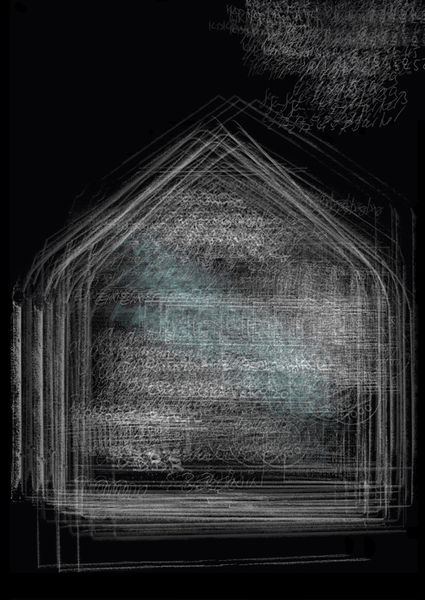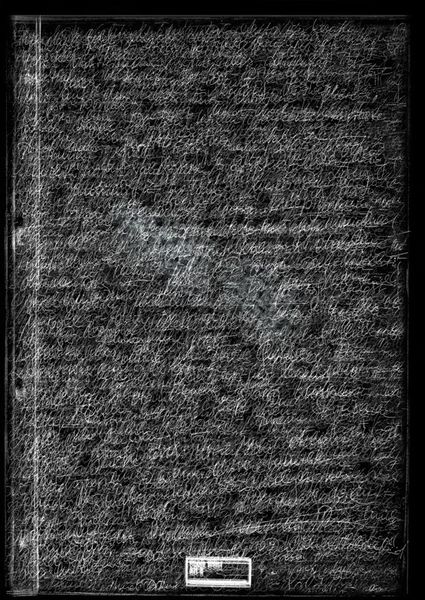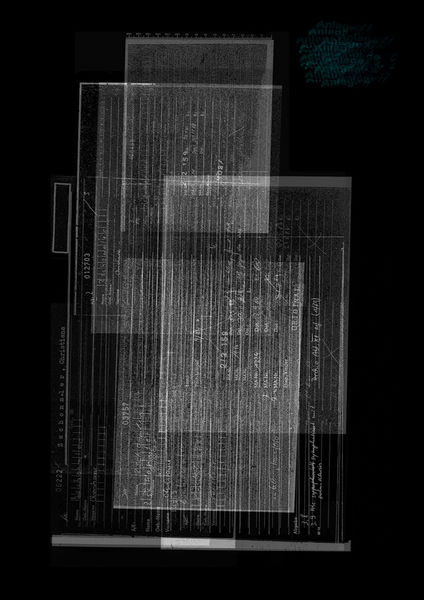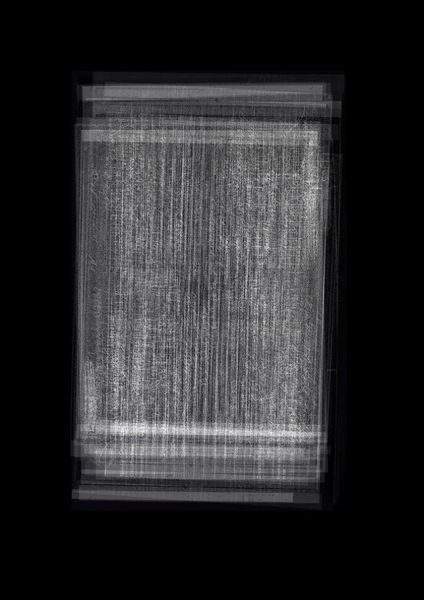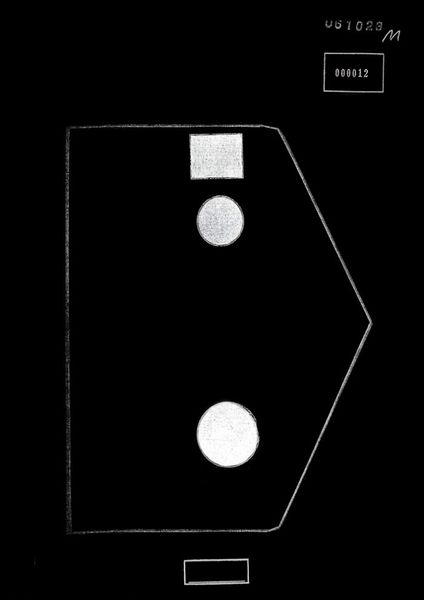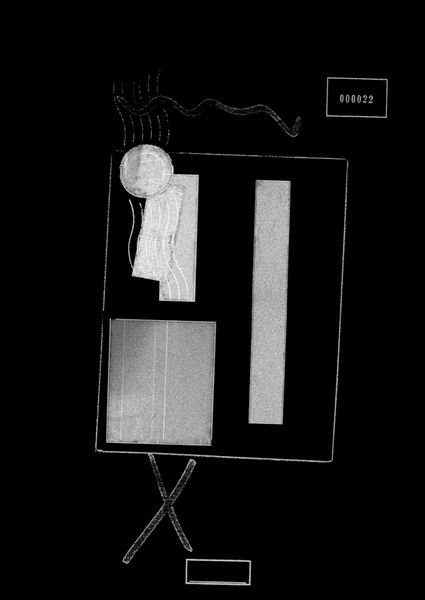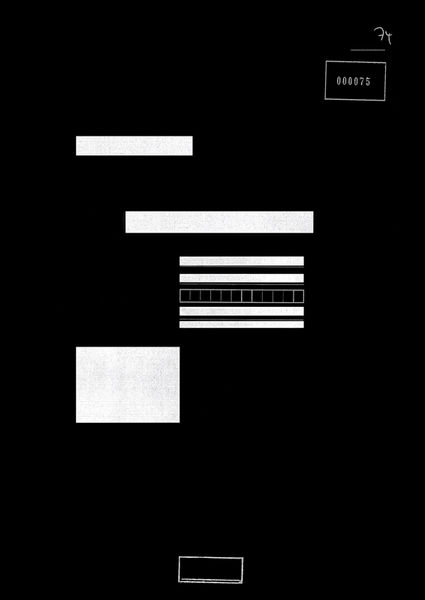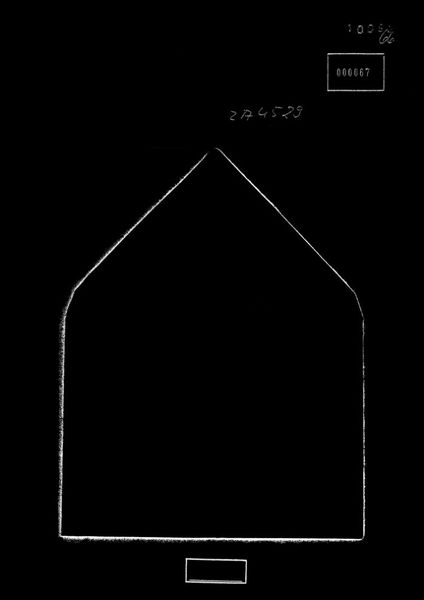File 1214/87, 2018
When The Power Has Gone ( 2018/2024)
https://www.blurb.co.uk/b/11967066
"You had to live - did live, from habit that became instinct - in the assumption that every sound you made was overheard, and, except in darkness, every moment scrutinized."
George Orwell, 1984
In 1997, I applied to find out whether there were secret files held on me ,
Six months later, I received a reply: the file 1214/87 existed.
The further delay before I could read my file in Berlin made me think about what it contained and about who had betrayed me. Family members? Close friends? Colleagues at work?
The file contained meticulous copies of letters exchanged with friends and publishers, transmitting teaching materials from the West. It included both the fronts and backs of envelopes, along with index cards documenting the evidence uncovered by the Stasi during their scrutiny of my mail.
I found it difficult to fathom the absurd pettiness and the extensive manpower devoted to collecting, reviewing, and censoring our correspondence. Moreover, I struggled to understand how they perceived me as a threat to the 'socialist dream'.
The final report in my file recommended my dismissal from my teaching position on the grounds of being 'unsuitable', leading to an abrupt transfer without prior notice.
We were transparent beings.
Some pages were censored by the new authority tasked with managing the Stasi's legacy. They were obscured with patterns of black rectangles to shield identities. The meticulously handwritten pagination by the Stasi was thoroughly renumbered and stamped by the new archivist.
Re reading deeply personal letters made me emotional. Since we did not have telephones, letter writing was an important form of dialogue among friends. I did not want to share this private mail again or publicise peoples’ identities. I needed to find ways of maintaining the integrity of the file while making the details illegible to the viewer.
I created images through a process of layering or selectively erasing parts of the documents.
In some cases, I opted to superimpose pages containing letters, envelopes with addresses or index cards, creating multi- layered compositions that emphasise form, pattern and motion.
With others, I removed names and delicate content, a symbolic gesture informed by the page's structure. I reduced individual pages to their essential shapes and forms, with only a trace of the original parts remaining. The resulting images evoke the simplicity of chalk drawings on a blackboard, reminiscent of my school days.
By reworking my own file, I interrogate the constructed nature of historical records and challenge the romanticised nostalgia that seeks to flatten the complexities of life under
authoritarian rule, portraying it as normal or acceptable over time.
Titles for the Overlays come from Stasi file 1214/87, using official abbreviations and code words. The redacted pieces are titled after page numbers assigned by the agency managing the Stasi archive.
6 Overlays (80 × 60 cm) and at least 12 Reductions (60 × 40 cm) are available.
https://www.blurb.co.uk/b/11967066
"You had to live - did live, from habit that became instinct - in the assumption that every sound you made was overheard, and, except in darkness, every moment scrutinized."
George Orwell, 1984
In 1997, I applied to find out whether there were secret files held on me ,
Six months later, I received a reply: the file 1214/87 existed.
The further delay before I could read my file in Berlin made me think about what it contained and about who had betrayed me. Family members? Close friends? Colleagues at work?
The file contained meticulous copies of letters exchanged with friends and publishers, transmitting teaching materials from the West. It included both the fronts and backs of envelopes, along with index cards documenting the evidence uncovered by the Stasi during their scrutiny of my mail.
I found it difficult to fathom the absurd pettiness and the extensive manpower devoted to collecting, reviewing, and censoring our correspondence. Moreover, I struggled to understand how they perceived me as a threat to the 'socialist dream'.
The final report in my file recommended my dismissal from my teaching position on the grounds of being 'unsuitable', leading to an abrupt transfer without prior notice.
We were transparent beings.
Some pages were censored by the new authority tasked with managing the Stasi's legacy. They were obscured with patterns of black rectangles to shield identities. The meticulously handwritten pagination by the Stasi was thoroughly renumbered and stamped by the new archivist.
Re reading deeply personal letters made me emotional. Since we did not have telephones, letter writing was an important form of dialogue among friends. I did not want to share this private mail again or publicise peoples’ identities. I needed to find ways of maintaining the integrity of the file while making the details illegible to the viewer.
I created images through a process of layering or selectively erasing parts of the documents.
In some cases, I opted to superimpose pages containing letters, envelopes with addresses or index cards, creating multi- layered compositions that emphasise form, pattern and motion.
With others, I removed names and delicate content, a symbolic gesture informed by the page's structure. I reduced individual pages to their essential shapes and forms, with only a trace of the original parts remaining. The resulting images evoke the simplicity of chalk drawings on a blackboard, reminiscent of my school days.
By reworking my own file, I interrogate the constructed nature of historical records and challenge the romanticised nostalgia that seeks to flatten the complexities of life under
authoritarian rule, portraying it as normal or acceptable over time.
Titles for the Overlays come from Stasi file 1214/87, using official abbreviations and code words. The redacted pieces are titled after page numbers assigned by the agency managing the Stasi archive.
6 Overlays (80 × 60 cm) and at least 12 Reductions (60 × 40 cm) are available.
